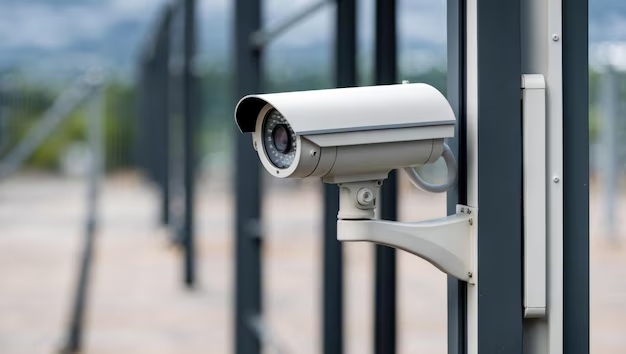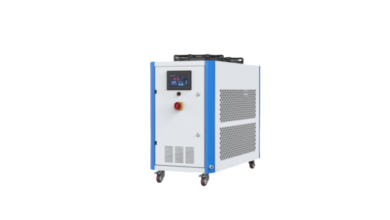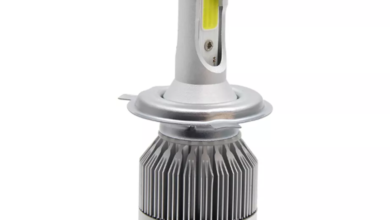CCTV & Security Cameras For Businesses: Everything You Need To Know

In the UK, it has become more important than ever to pay close attention to security. Improving staff safety whilst reducing shrinkage should always be a priority for any business owner. With that in mind, have you considered investing in CCTV cameras?
CCTV cameras have become one of the most significant additions to your security concepts. While they have been around for many years, CCTV cameras were once seen as something only ‘big’ businesses needed. Now, we regularly see a locksmith in Doncaster installing CCTV cameras on smaller businesses and households. The challenge, though, comes down to finding the right type of cameras.
From functionality to resolutions for clearer image output, night vision, zooming, and identification tools for vehicle license plates, there are many features. With the investment in smart security tools such as CCTV cameras, though, you could make your business much safer than ever before.
And with the help of a local locksmithing company, installation is easier than ever. Where do you start, though? Let’s take a closer look at CCTV and why it is such a worthwhile investment.
CCTV Cameras: Why Does Your Business Need Them?
Thankfully, this is a simple answer: to improve security and make staff feel safer. Criminals are instantly put off by the presence of CCTV cameras; they know that they are likely to be caught on camera if they get up to no good.
Having video evidence of crimes committed, even by your staff, is so useful for making sure you get a positive resolution. An inclination is one thing; having undeniable video proof caught by your CCTV cameras is another thing entirely. With most CCTV cameras you get today, too, they store your data via a 24/7 recording system, often powered by a network video recording device.
That means you can have months, even years, worth of footage stored away for when you need to review it. Being able to keep data secured on storage via the cloud, too, means you never have to worry about staff tampering with or wiping the in-house server. Of course, installing a CCTV camera system takes work.
How Do I Get My CCTV Cameras Working?
You need to have the cameras integrated, as well as the correct cabling and power sources. You will also need to have a video recording device that can store the recorded footage on your cloud storage or your in-house storage.
You will also need to have the right cables fitted, usually CAT 5/6 cables, so that you can transfer the vast amount of data created by video footage across your in-house Ethernet.
Luckily, a locksmith can make the installation process much easier; you do not have to handle this complicated task alone. A locksmith can run through the requirements your business needs to fit CCTV cameras.
Every business has its own challenges in getting CCTV cameras off the ground, so working with a professional makes the process so much simpler!
What Kind Of CCTV Cameras Are Suitable For My Business?
As you might imagine, CCTV cameras are not the same. You get a rich variety of cameras to pick from. The profile, shape, size, style, output and functions of the cameras change depending on the type of CCTV cameras you have installed.
Like any other security system, there are pros and cons for each. Confused? Again, a locksmith can run through what these features mean for you.
Generally, if you want to get CCTV cameras installed for your business, you should be looking at:
Dome Cameras
The first and most common form of CCTV cameras that we find on the market is dome cameras. They do the job you need very effectively.
Many love dome cameras as their wide-angle view style offers a better field of view, ensuring your CCTV cameras capture more with each second of footage. Some also prefer their low profile nature; it might not deter as many criminals, but it will catch them!
Bullet Cameras
Probably the second most common option on the market, though, are bullet cameras. These have a shape that makes them, as the name implies, look like a bullet. They have a very distinct visual style, so they get picked up quickly by criminals, making them the ideal ward against criminal activity, even being considered.
They can have various add-on features, too, such as infrared vision, thermal vision, night vision and enhanced zoom capabilities. They are a solid, general-purpose CCTV camera.
Fisheye Cameras
You see fisheye cameras more and more on the market thanks to their panoramic view stylings. They make a great choice for covering large areas, such as the shop floor of a large business, a warehouse or even a car park. Fish-eye cameras are highly adept at providing a large-scale level of cover without being too expensive.
Turret Cameras
Another option on the market that is growing in popularity is turret CCTV cameras. These operate on a rotation so they can constantly change their field of view without having to re-adjust manually or have multiple cameras covering the same area.
Turret cameras are a great choice for many areas where lighting is limited. Most also have infrared and night vision functions for further visibility boosts.
Pan-Tilt-Zoom Cameras
Sometimes, you need a camera that can give you more flexibility than you get with more traditional CCTV cameras. PTZ cameras, as they are known, give you better functionality when you need a camera that can be moved around.
They allow you to get a better level of visibility thanks to zooming, tilting and pan functionality. You can even have multiple FOV points that your camera cycles through.
Other Options For CCTV Cameras In Specific Settings
Of course, you also get some other models that have a more specific purpose. The above CCTV cameras are quite general purpose and could be used in many functions; the below cameras are more specific. These model types include:
CCTV Masts
Masts are not often installed for smaller businesses, but they are great for industrial locations and facilities that are still being built. They also make a great choice for outdoor events where security is critical, such as in-town festivals.
They provide comprehensive features and functions for security, ranging from high-quality HD imagery, zoom functionality, 360-degree coverage, and motion detection.
Door Cameras
While probably not suitable for most larger businesses, if you run a business that is in a house-like or smaller property, these could be ideal. Doorbell cameras are like the Ring cameras you might even have at home.
They provide you with 24/7 visibility right at your doorway. If someone knocks on your door or rings the bell, you can see who it is. If someone tries to break in after hours, you now have high-quality footage.
Wireless Cameras
Wireless connectivity is highly popular for businesses that don’t want to have wires hanging all over the place. However, these need to have a constant connection to your in-house Wi-Fi or Bluetooth. If these connectivity sources go down, your cameras will stop operating as they should.
Many people like wireless cameras as they tend to have excellent zoom functions without losing visual fidelity. They tend to be some of the most easily installed security cameras, too, due to the lack of wiring needed.
However, wireless CCTV cameras tend to have limited visibility when zooming in or focusing on a specific location, reducing their ability to provide solid evidence in tight-knit situations.
Work With A Professional For Law-Abiding CCTV Installations
As you can see, then, CCTV cameras offer a wide-reaching range of features. With so many different types of CCTV cameras, though, it can be tough to know which model is most suitable for you.
Our advice would be to reach out to a locksmith or a security company in your area. They can review your property, work out the ideal security solutions so you have no blind spots and full-scale coverage.
At the same time, a locksmith (or similar) can supply, install and maintain your CCTV cameras for you. Crucially, they also ensure that your new CCTV cameras are in full compliance with the law. Laws such as the UK’s Protection of Freedoms Act 2012, Surveillance Data Code of Practice 2013 and Data Protection Act all require you to be extra-careful about when and where you use CCTV cameras.
We recommend that you work with a professional, as they ensure that you get cameras installed in a way that boosts security while still falling in line with the law. Do not risk breaking the law when installing CCTV cameras; it comes with hefty penalties and potential reputational damage. With the right support service installing your CCTV cameras, though, you should be well above board legally.
CCTV cameras make it easier than ever to protect your assets, look after your business, and make sure your staff feel safer. Upgrade your business’s security practices today, and feel the benefits for years to come!





